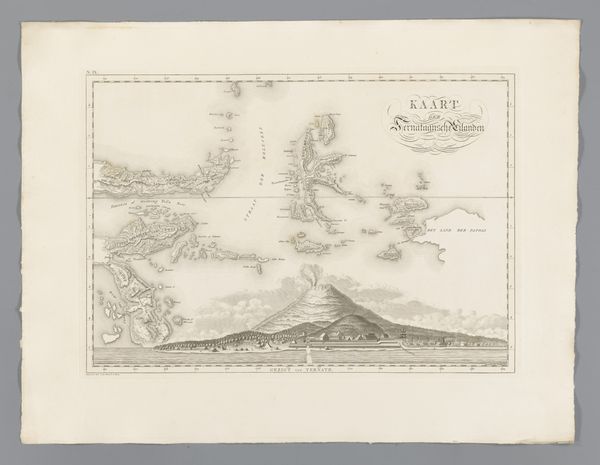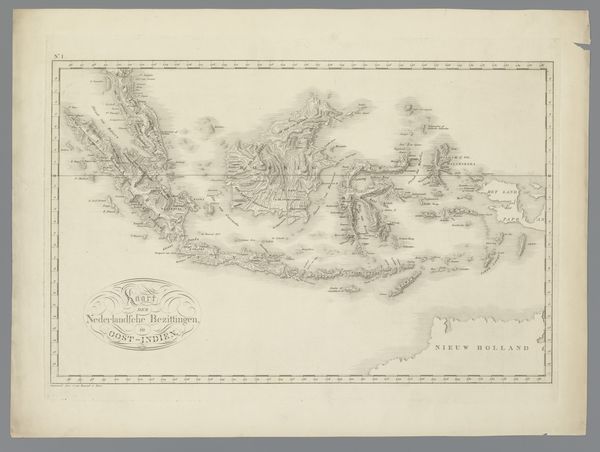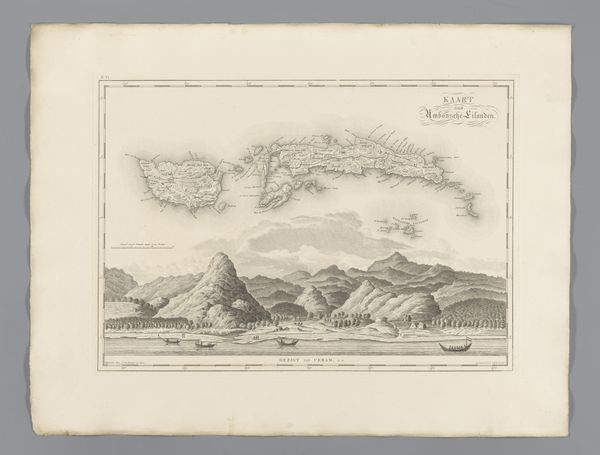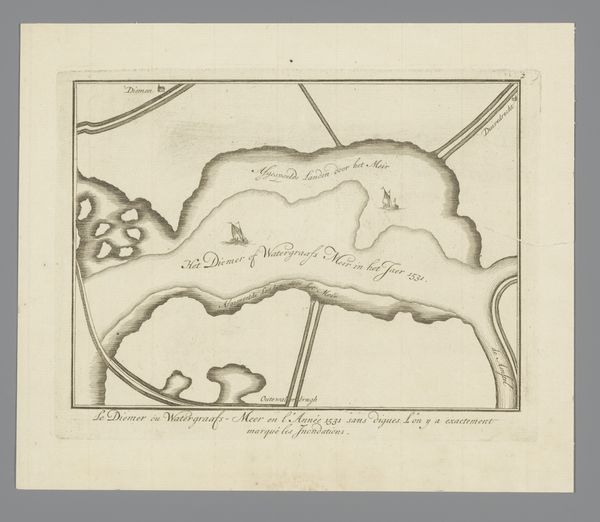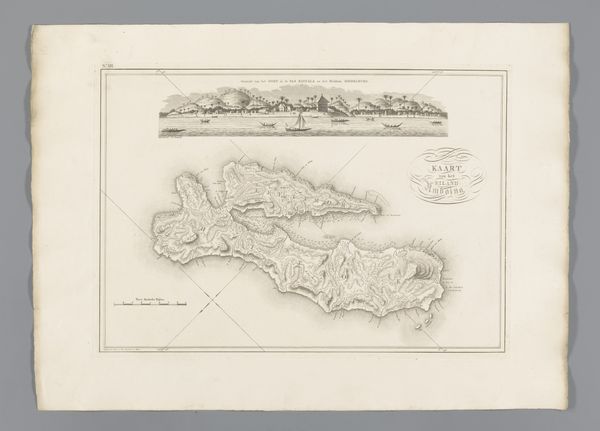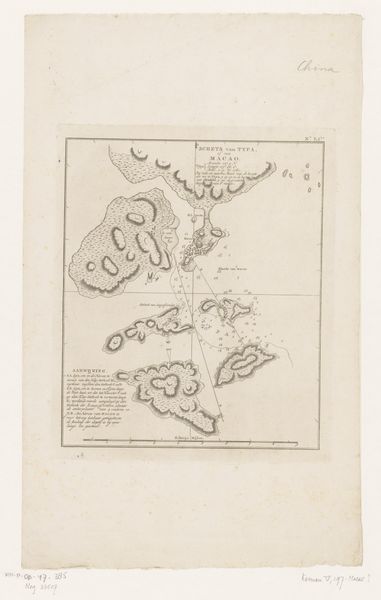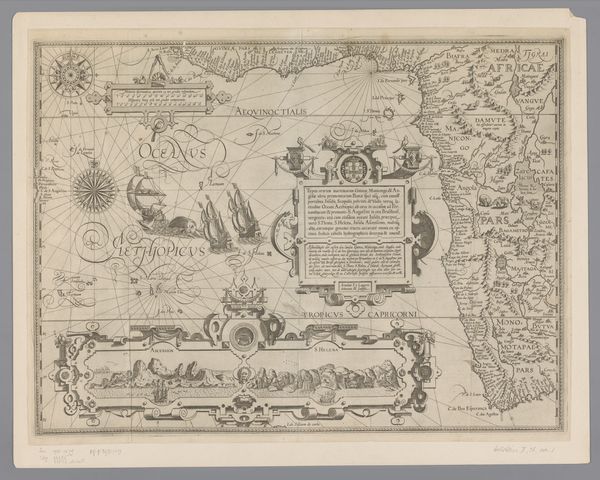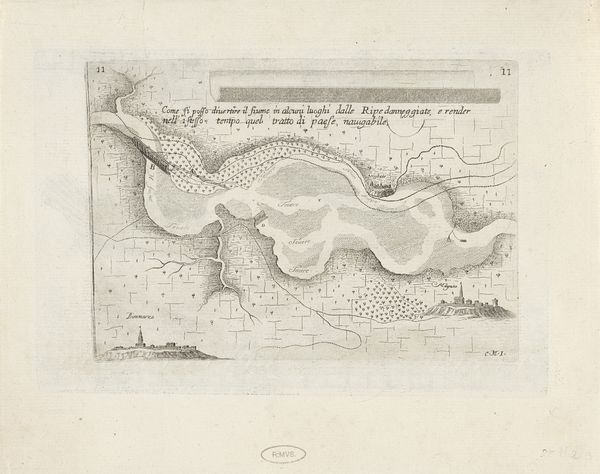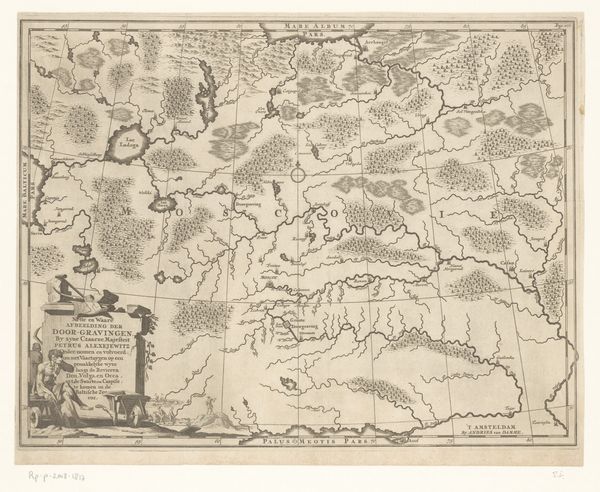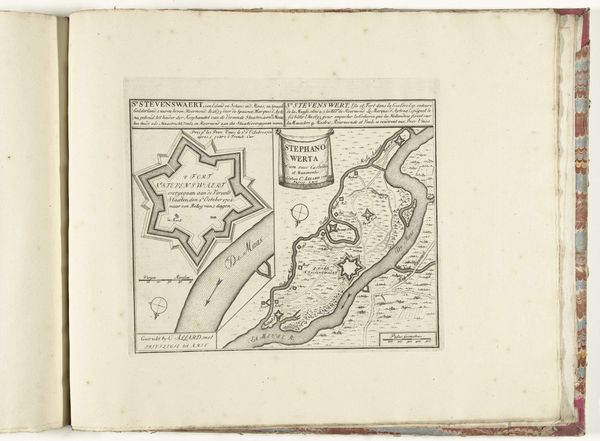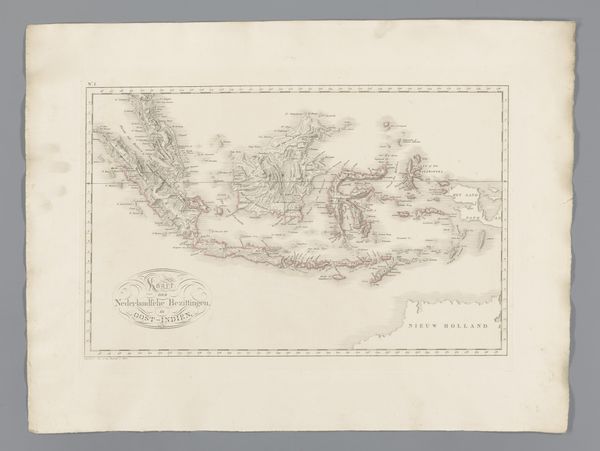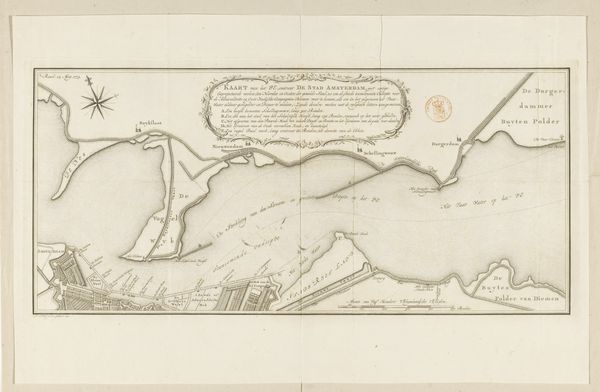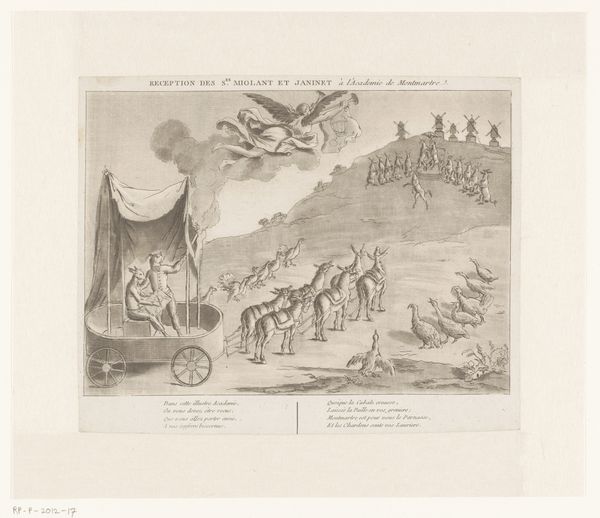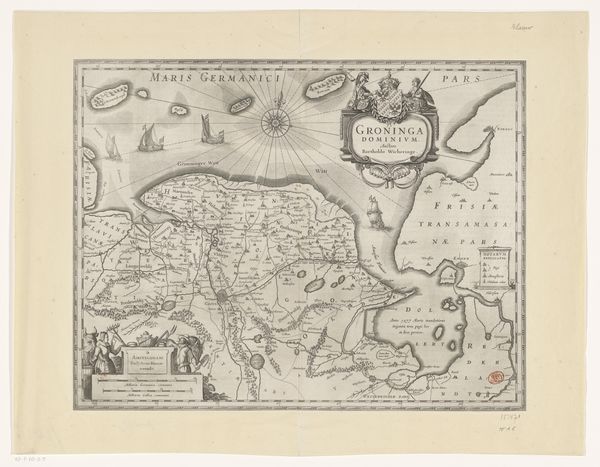
print, paper, engraving
# print
#
landscape
#
paper
#
orientalism
#
cityscape
#
history-painting
#
engraving
Dimensions: height 372 mm, width 532 mm
Copyright: Rijks Museum: Open Domain
This map of Ambon and Fort Middelburg was made by C. van Baarsel en Zoon. It’s an etching, which is an interesting process. A metal plate, usually copper or zinc, is coated in wax. The design is then scratched into the wax, exposing the metal underneath. The plate is then dipped in acid, which bites into the exposed metal, creating the lines of the image. Ink is applied to the plate, filling the etched lines, and the surface is wiped clean. The image is then transferred to paper under high pressure. Here, the even lines, delicate shading, and precision of detail are all made possible by this technique. But what is its wider significance? Well, it’s directly tied to European colonialism, and the Dutch East India Company's control of the spice trade. The map is as much a tool of power as it is a representation of a place.
Comments
No comments
Be the first to comment and join the conversation on the ultimate creative platform.
